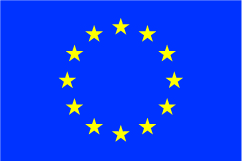 The Erasmus+ Programme is built on the achievements of more than 25 years of European programmes in the fields of education, training and youth, covering both an intra-European as well as an international cooperation dimension.
The Erasmus+ Programme is built on the achievements of more than 25 years of European programmes in the fields of education, training and youth, covering both an intra-European as well as an international cooperation dimension.
It renews and replaces seven programmes bringing together:
- The Lifelong Learning Programme (Erasmus, Leonardo da Vinci, Comenius and Grundtvig)
- The Youth in Action programme
- Five international cooperation programmes (Erasmus Mundus, Tempus, Alfa, Edulink, the programme for cooperation with industrialised countries)
- The new sport action
The Erasmus+ Programme is designed to support Programme Countries efforts to efficiently use the potential of Europe’s human talent and social capital.
The Programme also enhances the opportunities for cooperation and mobility with Partner Countries, notably in the fields of higher education and youth.
Inside Erasmus+, Erasmus Mundus Joint Master Degrees (EMJMDs) continue the successful experiences resulting from Erasmus Mundus Masters Courses, and aim to:
- Foster quality enhancements, innovation, excellence and internationalisation in higher education institutions;
- Boost the attractiveness of the European Higher Education Area (EHEA);
- Improve the level of competences and skills of Master graduates, and their employability.
At the end of their two years of master courses, students are awarded a joint or multiple degree.
Erasmus+ funds scholarships for students, as well as grants for academics or guest lecturers to teach or research in the Master degree programme.
For more information about the Erasmus+ programme, in particular about eligibility conditions and scholarships, please refer to the Erasmus+ Programme Guide.
